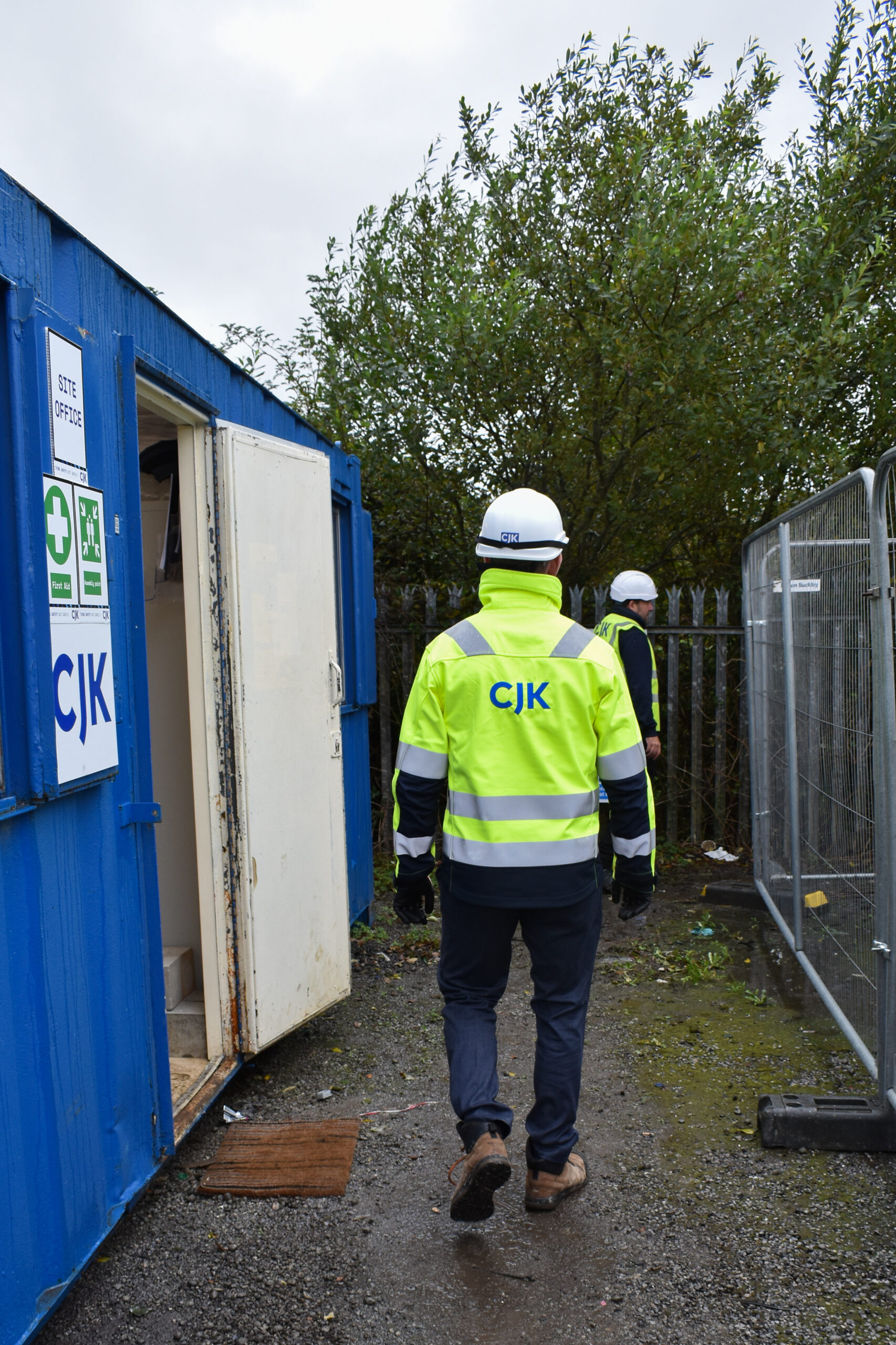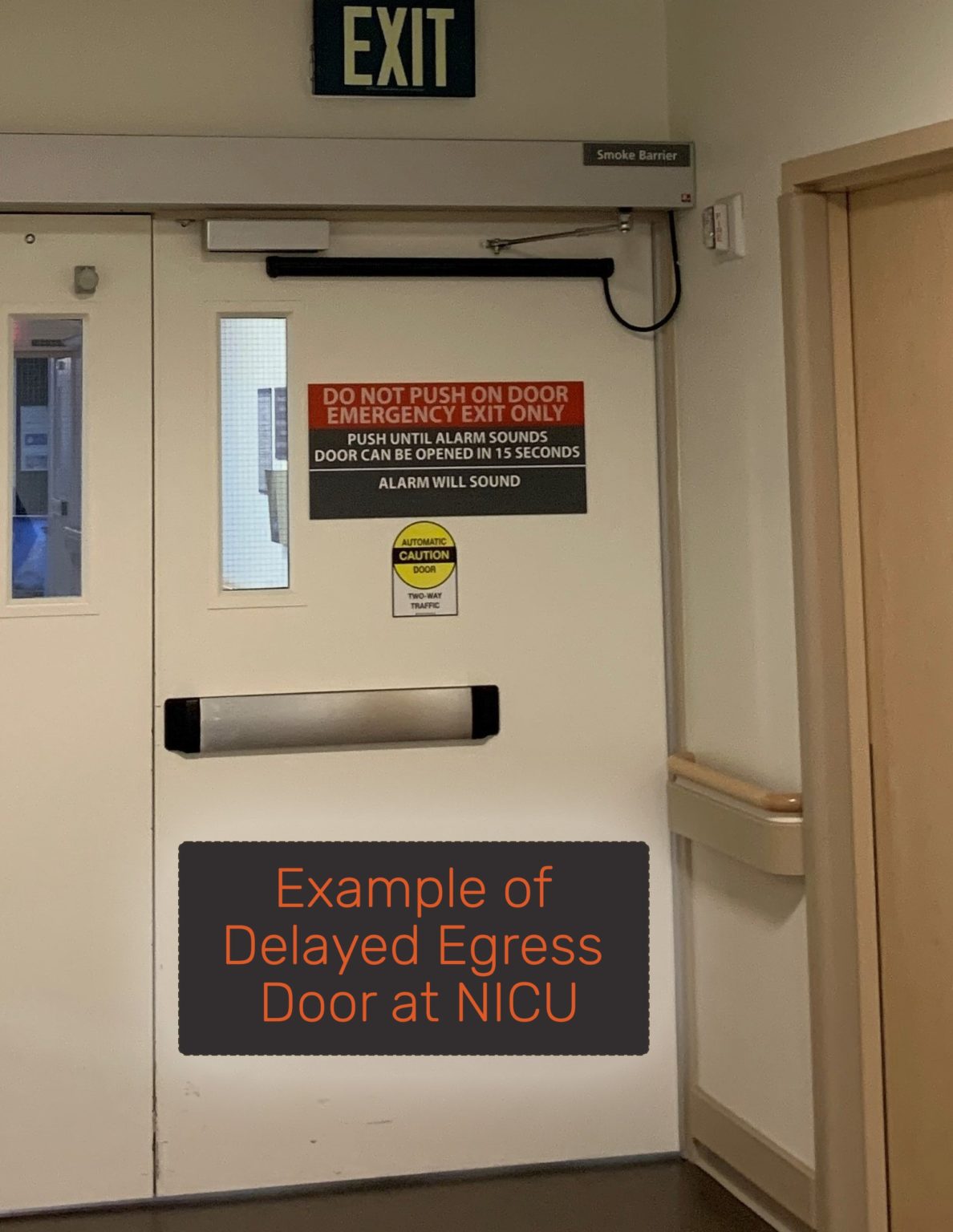The number of exits required in a building is determined by the building’s size, use, and occupancy. The International Building Code (IBC) provides minimum requirements for the number of exits, but these requirements may be modified by local codes or fire safety regulations.

Safe-T-First® Luminous Egress Path System | Rubber tiles, Egress – Source www.pinterest.com
Understanding Safe Egress
Safe egress is the ability to evacuate a building safely in the event of a fire or other emergency. The number of exits required in a building is determined by several factors:
- The building’s size and occupancy.
- The type of building.
- The fire safety features of the building.

Cincinnati Grand Opening – MSD, Inc – Source www.msdinc.net
Optimal Number of Exits
The IBC requires a minimum of two exits for buildings with an occupant load of 50 or more people. For buildings with an occupant load of less than 50, one exit may be sufficient. However, local codes or fire safety regulations may require more exits.
The type of building also affects the number of exits required. For example, hospitals and nursing homes require more exits than office buildings or retail stores. This is because hospitals and nursing homes have a higher occupant load and more vulnerable occupants.

Construction Safety Month: Safe Access & Egress – CJK – Source cjkengineering.ie
Safe Egress: Personal Experience
Safe Egress: Detailed Explanation
Safe egress is the ability to evacuate a building safely in the event of a fire or other emergency. The number of exits required in a building is determined by several factors, including the building’s size, occupancy, and fire safety features. The International Building Code (IBC) provides minimum requirements for the number of exits, but these requirements may be modified by local codes or fire safety regulations.
In addition to the number of exits, the location of the exits is also important. Exits should be located so that they are easily accessible from all parts of the building. They should also be free of obstructions and well-lit.

Construction Safety Month: Safe Access & Egress – CJK – Source cjkengineering.ie
Safe Egress: History and Myth
The history of safe egress dates back to the early days of fire safety. In the early 1900s, several major fires occurred in the United States, including the Triangle Shirtwaist Factory fire in New York City and the Iroquois Theater fire in Chicago. These fires resulted in the deaths of hundreds of people, many of whom were trapped in buildings because there were not enough exits.
In the wake of these tragedies, new fire safety codes were developed to ensure that buildings had adequate exits. The IBC was first published in 1950, and it has been updated several times since then. The IBC provides minimum requirements for the number and location of exits in buildings.

Construction Safety Month: Safe Access & Egress – CJK – Source cjkengineering.ie
Safe Egress: Hidden Secrets
There are several hidden secrets to safe egress that you may not be aware of. Here are a few:
- The number of exits required in a building is not always the same. The IBC provides minimum requirements, but local codes or fire safety regulations may require more exits.
- The location of the exits is also important. Exits should be located so that they are easily accessible from all parts of the building. They should also be free of obstructions and well-lit.
- In addition to the number and location of exits, the design of the exits is also important. Exits should be designed so that they can be used by people of all ages and abilities.

Safe Access and Egress of Vehicles – Total Compliance – Source totalcompliance.co.uk
Safe Egress: Recommendations
Here are a few recommendations for ensuring safe egress in your building:
- Make sure that your building has the required number of exits.
- Locate the exits so that they are easily accessible from all parts of the building.
- Keep the exits free of obstructions and well-lit.
- Design the exits so that they can be used by people of all ages and abilities.

24.1-06-01-30. Markings of means of egress, illumination of means of – Source www.electricallicenserenewal.com
Safe Egress: Detailed Explanation
In addition to the number and location of exits, the design of the exits is also important. Exits should be designed so that they can be used by people of all ages and abilities. This includes people with disabilities, children, and the elderly.
Exits should be clearly marked and easy to find. They should also be free of obstacles and well-lit. The path of travel to the exits should be clear and unobstructed.

Creating a safe Egress Pathway | Luminous Egress Math Parking – Source ecoglo.us
Safe Egress: Tips
Here are a few tips for safe egress:
- Know the location of the exits in your building.
- Practice evacuating your building using the exits.
- Keep the exits clear of obstacles.
- Be aware of the fire safety features in your building.

Construction Safety Month: Safe Access & Egress – CJK – Source cjkengineering.ie
Safe Egress: Detailed Explanation
Safe egress is an important part of fire safety. By following these tips, you can help ensure that you and your loved ones can evacuate your building safely in the event of a fire.

Healthcare Insights: Security Control and Means of Egress | Coffman – Source www.coffman.com
Safe Egress: Fun Facts
Here are a few fun facts about safe egress:
- The IBC is the most widely used fire safety code in the United States.
- The IBC requires a minimum of two exits for buildings with an occupant load of 50 or more people.
- The location of the exits is also important. Exits should be located so that they are easily accessible from all parts of the building.
Safe Egress: How To
Here are a few tips on how to ensure safe egress in your building:
- Make sure that your building has the required number of exits.
- Locate the exits so that they are easily accessible from all parts of the building.
- Keep the exits free of obstructions and well-lit.
- Design the exits so that they can be used by people of all ages and abilities.
Safe Egress: What If
What if there is a fire in your building and you cannot evacuate through the exits? Here are a few things you can do:
- Stay calm and do not panic.
- Try to find another way out of the building.
- If you cannot find another way out, go to a window and call for help.
- If you are trapped in a room, close the door and stuff the cracks around the door with towels or clothing.
Safe Egress: Listicle
Here is a listicle of tips for safe egress:
- Know the location of the exits in your building.
- Practice evacuating your building using the exits.
- Keep the exits clear of obstacles.
- Be aware of the fire safety features in your building.
- Stay calm and do not panic in the event of a fire.
Question and Answer
- What is safe egress?
- How many exits are required in a building?
- Where should exits be located?
- What are some tips for safe egress?
- Know the location of the exits in your building.
- Practice evacuating your building using the exits.
- Keep the exits clear of obstacles.
- Be aware of the fire safety features in your building.
- Stay calm and do not panic in the event of a fire.
Safe egress is the ability to evacuate a building safely in the event of a fire or other emergency.
The number of exits required in a building is determined by the building’s size, occupancy, and fire safety features. The IBC requires a minimum of two exits for buildings with an occupant load of 50 or more people.
Exits should be located so that they are easily accessible from all parts of the building. They should also be free of obstructions and well-lit.
Here are a few tips for safe egress:
Conclusion of Safe Egress: Determining The Optimal Number Of Exits
Safe egress is an important part of fire safety. By following the tips in this article, you can help ensure that you and your loved ones can evacuate your building safely in the event of a fire.